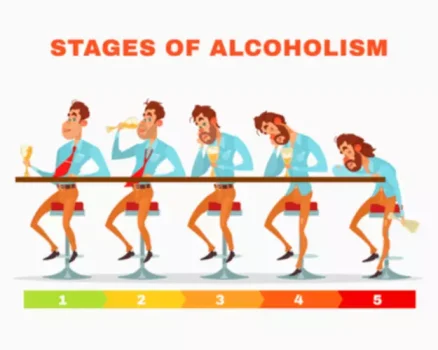
If you adopted a child or are providing foster care, you may not know if the biological mother drank alcohol while pregnant. International adoption from some countries may have a higher rate of alcohol use by pregnant mothers. If you have concerns about your child’s learning or behavior, talk with your child’s healthcare professional to find out what might be causing these problems. There is no amount of alcohol that’s known to be safe to drink during pregnancy. If you drink during pregnancy, you place your baby at risk of fetal alcohol syndrome. A doctor or health visitor will need to know if your child was exposed to alcohol during pregnancy to help make a diagnosis of FASD.
What are the symptoms of fetal alcohol spectrum disorders?
Teratogens can interfere with a fetus’s growth and development, particularly that of the central nervous system (CNS), which includes the brain and spinal cord. Alcohol use in pregnancy has significant effects on the fetus and the baby. Dependence and addiction to alcohol in the mother also cause the fetus to become addicted. But since the alcohol is no longer available, the baby’s central nervous system becomes over stimulated, causing symptoms of withdrawal. Alcohol withdrawal may begin within a few hours after birth, and symptoms may last up to 18 months. The symptoms of fetal alcohol syndrome tend to get worse as a person grows up.

What are Fetal Alcohol Effects?

Alcohol is broken down more slowly in the baby than in an adult. Even light or moderate drinking can affect the growing baby. Early identification of FASD is critical for the well-being of individuals affected by prenatal alcohol exposure and their families. Early identification can maximize help in the treatment of FASD and in building supportive networks https://ecosoberhouse.com/ with other individuals and families impacted by FASD. This may be due, in part, to a lack of information about prenatal alcohol exposure or difficulty in distinguishing FASD from other developmental disorders that might have similar cognitive or behavioral symptoms. No one particular treatment is correct for everyone with fetal alcohol syndrome.
- Physical symptoms such as growth impairment remain unchanged during adulthood, with persistent shorter stature.
- If a baby has exposure to alcohol in the womb, they can develop a range of conditions known as fetal alcohol spectrum disorders (FASDs).
- Celebrate special occasions with a fun, non-alcoholic “mocktail.” Partners can be supportive by abstaining from alcohol during the pregnancy as well.
- Children with FASDs also are helped by being in a loving, nurturing, and stable home.
Diagnosis of FAS

The Division of Newborn Medicine specializes in treating babies with a wide range of congenital and acquired conditions. Many drugs can pass from a mother’s blood stream through the placenta to the fetus. Alcohol is broken down more slowly in the immature body of the fetus than in an adult’s body. This can cause how to treat alcoholism the alcohol levels to remain high and stay in your baby’s body longer. The symptoms of FASDs may resemble other medical conditions or problems. Long-term problems in children with FASDs may include psychiatric problems, gang and criminal behavior, poor socialization, unemployment, and incomplete education.

Symptoms and Causes
- During those early weeks of pregnancy, the fetus is going through a massive surge of development.
- Stigma is another barrier to diagnosis, as well as healthcare access.
- Early identification of FASD is critical for the well-being of individuals affected by prenatal alcohol exposure and their families.
Talk to your child’s doctor or other members of the care team. Fetal alcohol syndrome and other FASDs can be prevented by not drinking any alcohol during pregnancy. A woman shouldn’t drink if she’s trying to get pregnant or thinks she may be pregnant. If a pregnant woman does drink, the sooner she stops, the better it will be for her baby’s health. The child may go to see a team of specialists who can help make the diagnosis.
Fetal Alcohol Syndrome (FAS) Symptoms & Causes
- Additionally, it can have mental health side effects and often results in psychiatric disorders.
- If you’re pregnant and struggling with an alcohol problem, talk to a midwife or doctor.
- NOFASD has been at the forefront of supporting people and families living with FASD across Australia for a remarkable 25 years.
- Generally, the more alcohol a person consumes during pregnancy, the higher the chance of FAS.
Deterrence and Patient Education
- The problems that can happen when babies are exposed to alcohol are grouped together and called fetal alcohol spectrum disorders (FASDs).
- Prenatal alcohol exposure and central nervous system (CNS) involvement are factors common to the disorders encompassing FASD.
- Living in stressful, isolated, or adverse conditions may increase the chance of FAS.
- Treatment is deterrence in the setting of fetal alcohol syndrome.

